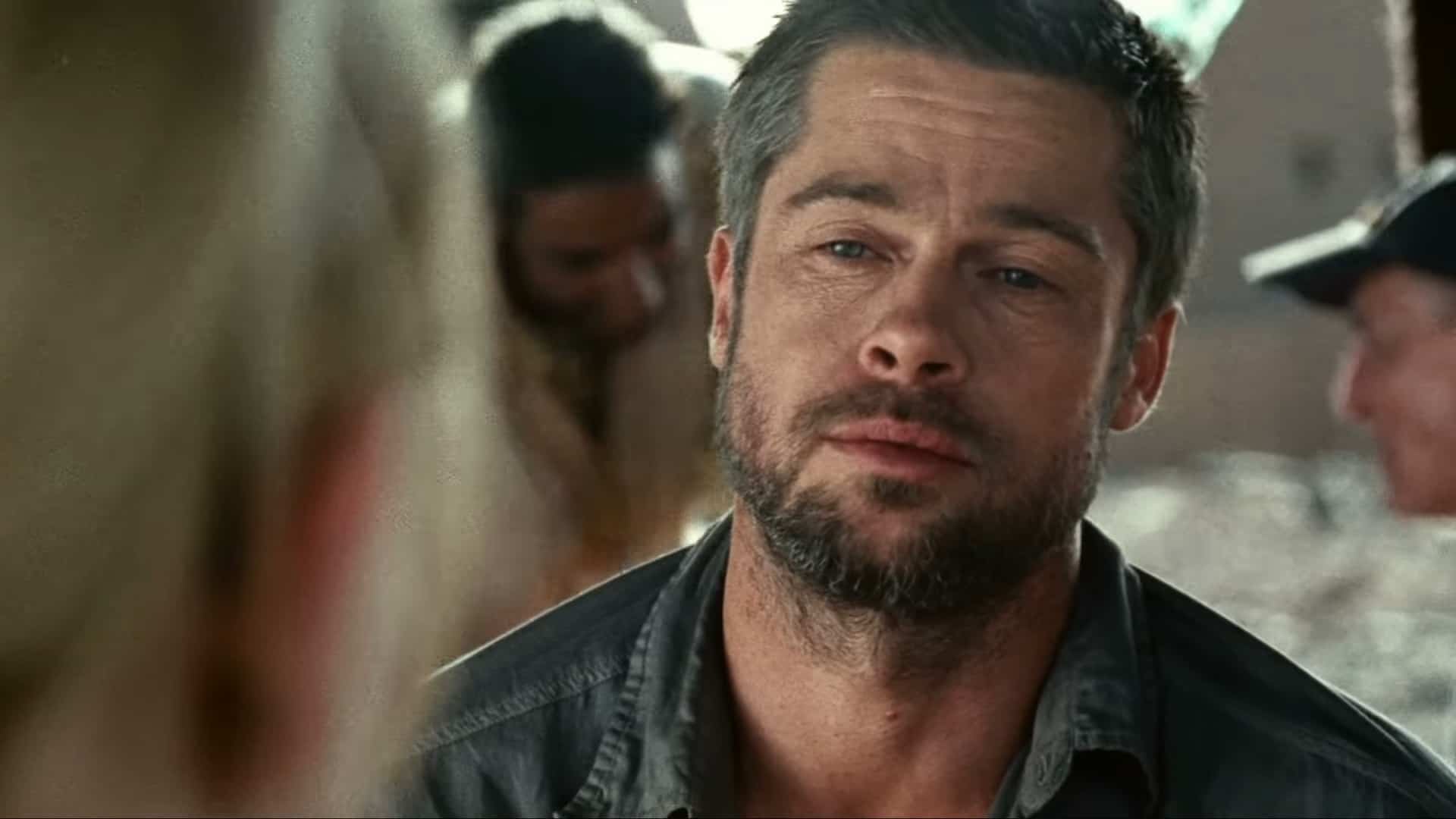Babel is Alejandro Gonzalez Inarritu’s third film in a series of films following “Amores Perros” and “21 Grammes” that all have a similar structure of interconnecting stories. Both “Amores Perros” and “21 Grammes” are very good, and I highly recommend them (Keep in mind they’re for adults only). But Babel, in my opinion, is the best of the three.
Babel is a surprisingly difficult one to discuss or definitively classify, yet it’s surprisingly simple and an interesting paradox. You have many different people all around the world with many different customs and languages, and they all try to solve the problems presented to them due to the gunshot.
Whether they are at fault in their circumstances or not, they still seem to make things messy and confusing for themselves. Let’s talk about the Babel movie’s Ending and the true meaning behind the entire movie.
Babel Plot
Babel is a story that takes place in four locations around the world. In Morocco, we have two brothers, Yusuf and Ahmed, tasked with guarding a herd of goats against jackals using a rifle their father purchased. They begin to practice with the rifle to test its range. They practice on rocks. And then that a passing car to no effect.
Now, the boys don’t mean any harm by doing any of this, as they don’t believe that the rifle can shoot up to three kilometers as was promised and don’t believe they could hurt anyone or anything at that far range.
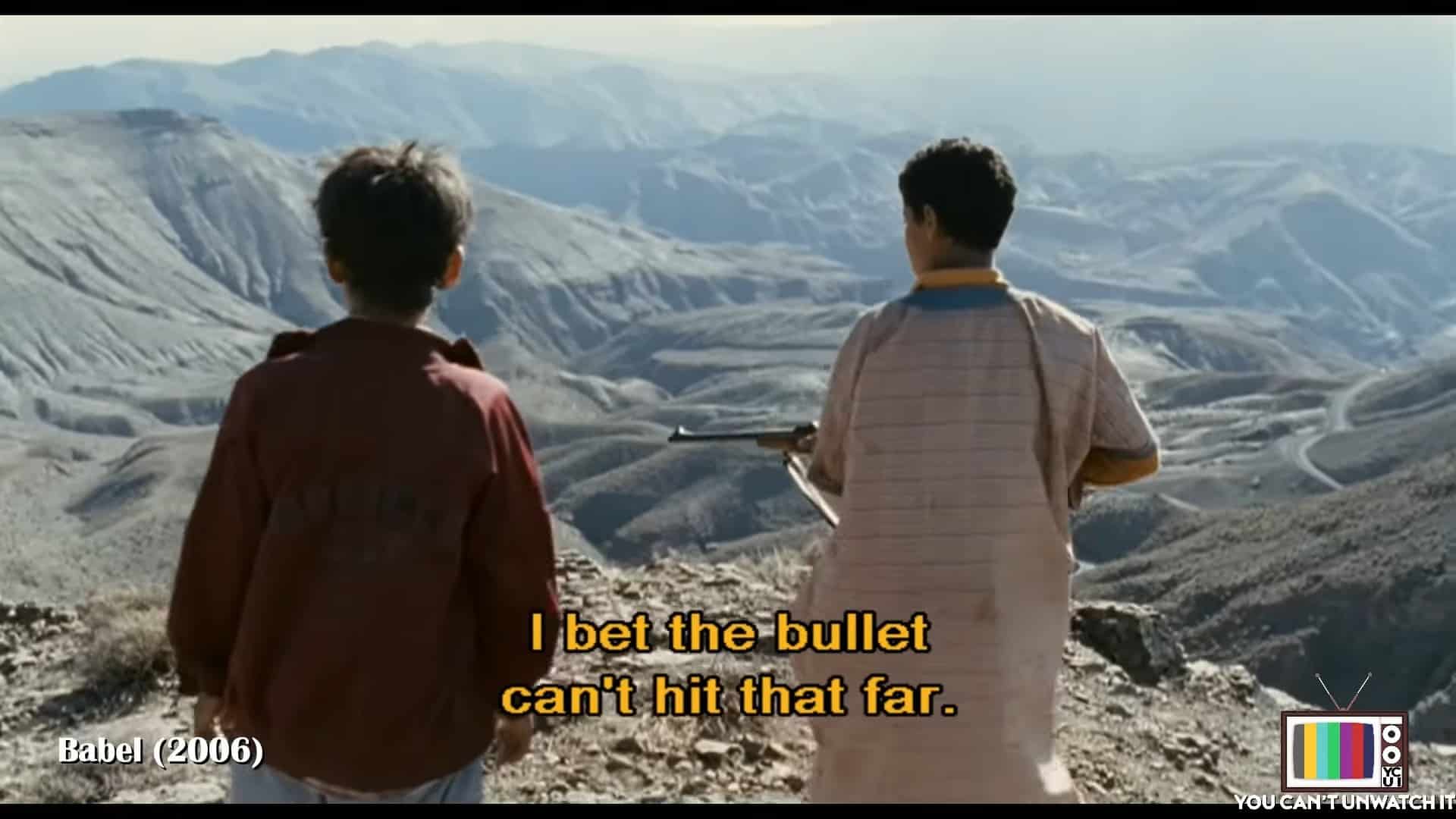
But, when one of the boys fires a shot at a tour bus, it is stopped because the tourist Susan, played by Cate Blanchett, was hit. She was on a trip with her husband Richard, played by Brad Pitt, and they were both mourning the loss of their baby, who died of sudden infant deaths syndrome.
This causes a wide range of small to large scale events to occur. It has become a global incident, and the Moroccan government is under pressure to look into it out of concern that it might be a terrorist attack.
As all is going on, Adriana Barraza’s character, Amelia, is caring for Richard and Susan’s two elder children, Mike and Debbie, who Nathan Gamble and Elle Fanning are portraying, respectively, in America.
Amelia needs to return to Mexico to celebrate her son’s wedding, but she can now do so because of Susan’s condition, and nobody else can watch the children. Amelia travels to Mexico with the kids, which starts a new chain of events.
Last but not least, we follow Chieko, a deaf teenager still in shock over her mother’s suicide in Japan. Chieko is portrayed by Rinko Kikuchi. And to get love and attention, she acts in risky activities. And her father, who is portrayed by Koji Yakusho, has something to do with the Moroccan incident.
Babel Explained
The title, of course, refers to the Tower of Babel in Genesis Chapter 11. What resulted from that is humanity’s speech became confounded, and thus they couldn’t understand one another, resulting in different languages, customs, and nations.
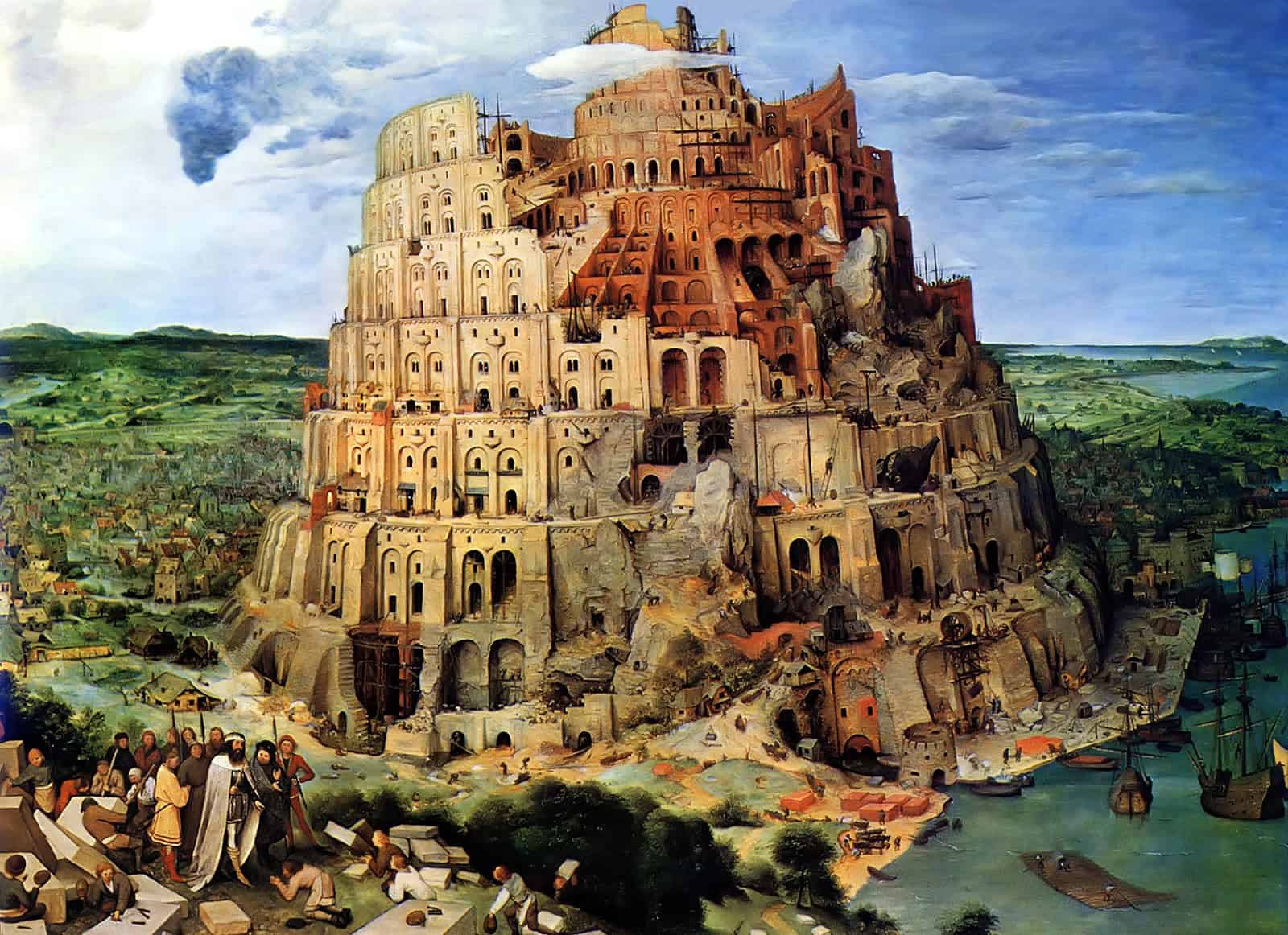
Now the film is by no means a kind of wanted retelling of the Tower of Babel in Genesis. But the title Babel highlights that despite how modern and sophisticated we may seem or how interconnected the world may be now, humans still misread and misunderstand each other.
The Fate Of Two Moroccan Boys
First, there are the Moroccan boys and related players. Their father had instructed them to keep an eye on the group of sheep and only to shoot jackals. But as boys do, they enter a competition, in this case, to determine whether the gun can indeed shoot as far as three kilometers as described.
The boys hear from their father later that night of an American tourist being killed, which isn’t the case. And at first, they tried to hide the gun in some hope that this would all pass over them. But the boys don’t realize that the police can link the shells back to the gun and find the original owner. And that happens.
The international community puts pressure on the local police to find the culprits who are suspected to be terrorists, and this causes the police to use rather extreme methods to get answers.
When the boys realize that the police are on their trail, they fess up to their father, who is, of course, furious with them. On their way to try to return the rifle, which they weren’t supposed to own in the first place, the police opened fire and ended up hitting Ahemd. And against his father’s wishes, Yusuf fires back and hits an officer. This, in return, gets his brother deeply wounded by another gunshot.
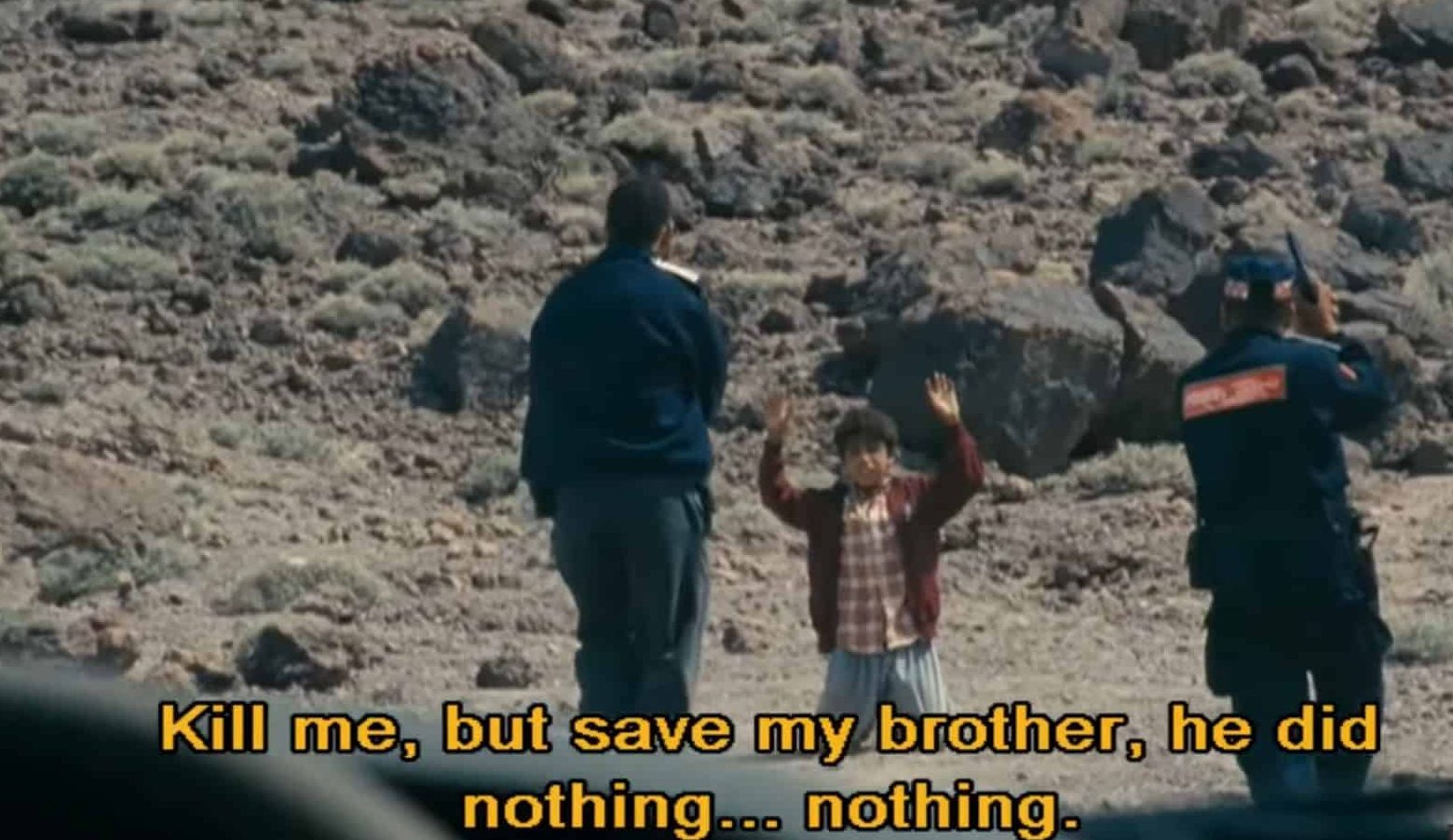
Yusuf finally realizes the dire situation therein and surrenders to get his brother’s help and clemency for his family. None of this would have happened if they had listened to their father and stuck to hunting jackals.
Fate Of Richard And Susan
The American couple in Morocco comes next. Since the death of their youngest child, Susan and Richard have been at odds, they haven’t spoken to one another in order to work through their guilt, and they both feel bad about it.
Instead of working out their grief together, there was a period of time when Richard ran off as he didn’t know how to handle the loss, leaving Susan to deal with the grief alone. This leads to resentment between them, mostly on Susan’s part.
When Susan is shot, and Richard is faced with the possibility of another major loss, he works ragged to get her to safety with the help of the interpreter and the tour group. And in panic, even he loses his temper with those trying to explain to him that his embassy stopped the local ambulance from coming due to terrorist fears.
And then there are those on the tour bus. Although sympathetic and concerned at first, the people on the tour bus feel inconvenienced by having to wait a very long time. Some even appear to be uncomfortable being in the village, where they have to stop and get Susan some help.
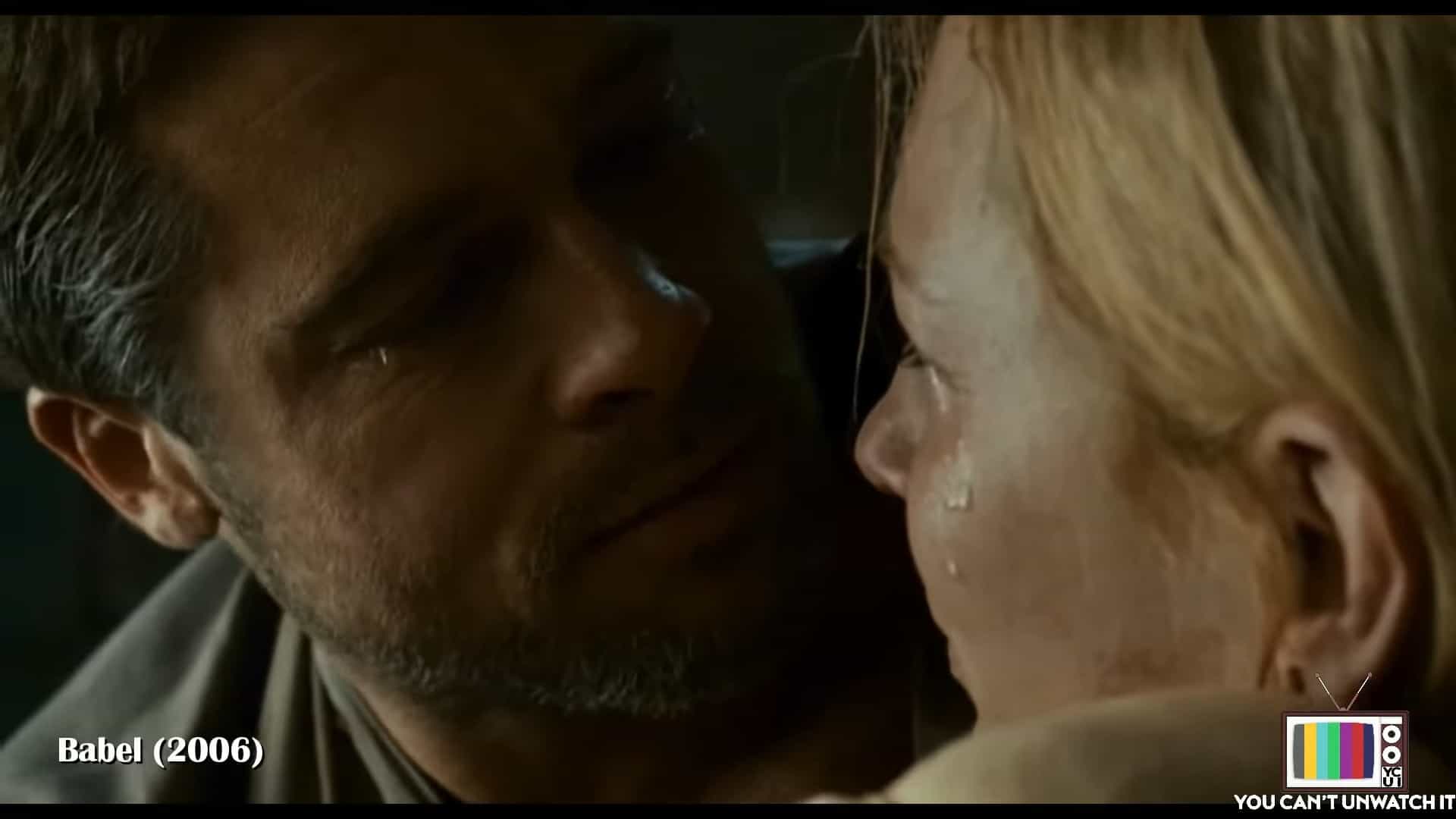
To be fair, it isn’t just the previous prejudices of some in the tour group that is compelling them to leave Richard and Susan behind, as there are elderly people overheating and people needing to get back to their hotels in order to take their medicine. Richard being frantic for his wife’s welfare makes him, in turn, somewhat deaf to their needs, and that creates tension. But the tour bus group, in turn, leaves them behind.
In the time between the bus leaving and the embassy, eventually sending a helicopter, Richard and Susan do reconnect, and Susan forgives him.
Babel Ending Explained
Although told out of sequence, we see how the mere act of giving a rifle to someone as a gift can throw a monkey wrench into the lives of so many. And seeing how it is dealt with by those affected is just as fascinating. As the events play out, each culture, in its own ways, tries to solve the problems that the rifle shot causes and the chaos that ensues from it, with varying results.
Yousuf sees how his willful act of disobedience and trying to cover his indiscretion with his brother nearly gets his father and his brother killed. Amelia assumed she could just take Richard and Susan’s children with her across the border and could make it back just as easily. She didn’t consider the bullet may be acceptable to just take someone else’s kids and bring them back easily from where she’s from. That is frowned upon in the US.
True, she never meant any harm, and though she did love the children very much, it was still incredibly dangerous. Putting the children in the hot desert where they could die thus causes Richard and Susan to lose more than just their infant. Apart from losing her home in the United States, this causes her to lose the trust of at least Michael and probably even Debbie as well.
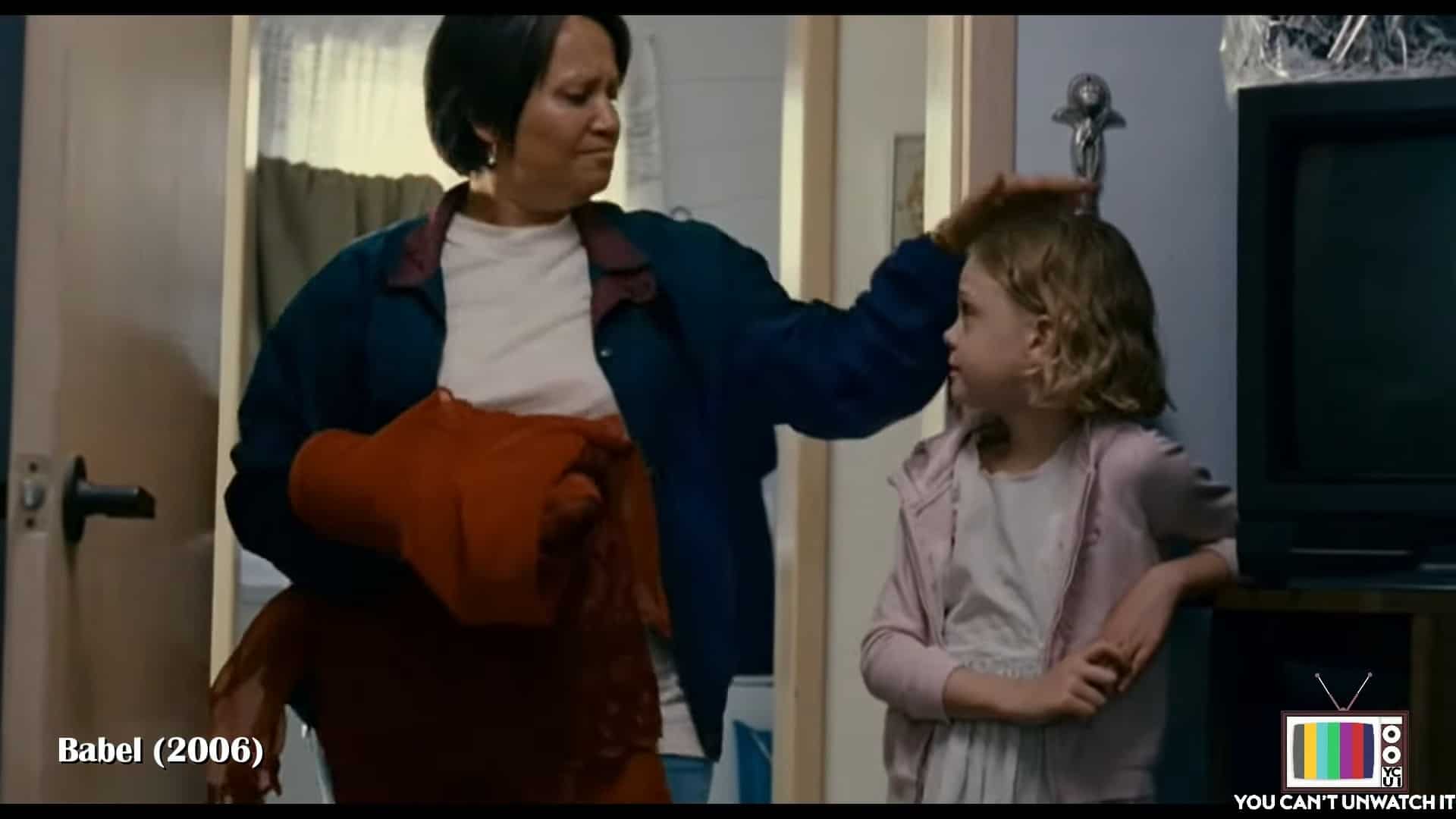
Richard comes away from the whole experience learning not to take things for granted and not to do anything that could risk him losing his family. If anything, nearly losing Susan was a wake-up call, and given the circumstances, he’s lucky to make it through it.
He’s also lucky to have the help of the interpreter, who, at the end of the film, refuses the money that Richard is trying to give to him because he is just happy to be of assistance. None of the people in the film are villainous or just plain bad, even when they do or say questionable things to each other. There’s no political message or huge moral lesson to impart.
Because what is there to impart? It shows that no matter how different people may seem, children will be children. The smartest of adults will act foolishly, and misunderstandings, willful or unintentional, will always occur. In all the stories shown in Babel, Richard and Susan, as well as Chieko and her father, are the ones who probably had the happiest of outcomes due to this whole affair. That’s life. Life by nature has unequal outcomes for people, and this film doesn’t have essential cliches of the usual happy or sad outcomes.
Life is more complicated than that. Life is frightening, sad, happy, and full of second chances, devastations, and disappointments all rolled into one. And no one is exempt from experiencing any of them. It’s a small world, after all.
Also Read: The Truman Show Ending Explained: The Dark Hidden Meaning Behind The Movie

